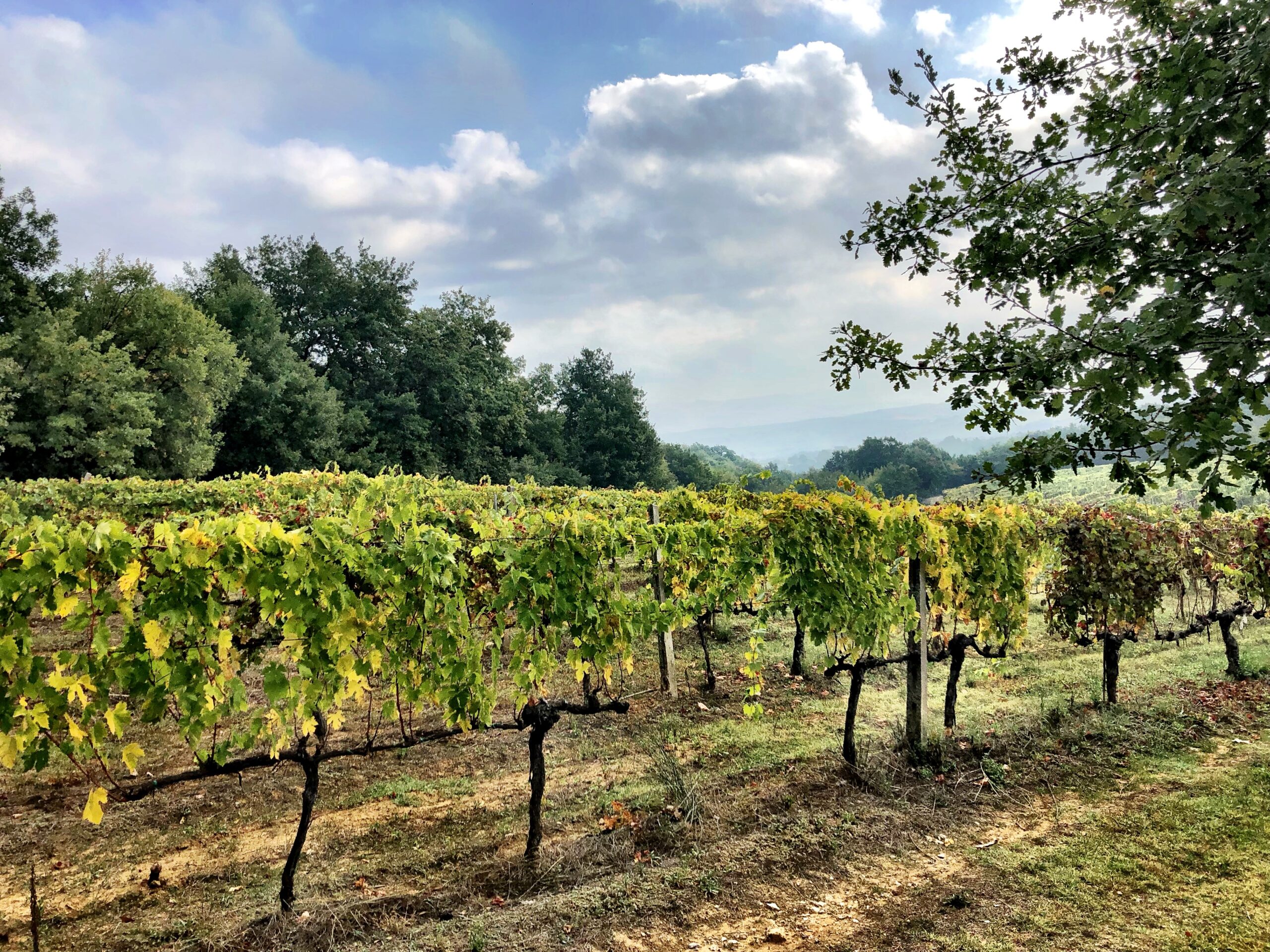Welcome to week 3! Missed the first weeks? Click here to catch up. Password is always: TUSCANY (all caps).
This week we start to answer the question of what makes a wine “organic.” The answer lies in breeding an army of enemies against vine parasites, setting up spies around the vineyard and subjecting local insects to something called “sexual confusion.”
I guess, all’s fair in love and wine.
Watch the Video
And learn about some organic/biological wine methods. As usual the password is TUSCANY (all caps).
Biological (Organic) Wine
“Biologico”
In Italian, the way to say a wine is organic is “Biologico” or “Biological.” Ok, that’s out of the way.
Now, what is organic/biologico wine?
Grapes are grown without the help of insecticides, herbicides, pesticides, all the dangerous “-cides” that get fast results but damage the surrounding environment. (The cellar practices also must adhere to these rules, forgoing the use of harmful chemicals.)
Look for this label on European wine to know if a wine is organic.

How do you get this fancy leaf label?
First, a winery has to prove they have been organic for three years before qualifying for the label to allow time for any previous pesticides to filter out of the earth. Every winemaker we spoke to said, “the rule is three years but obviously that’s not enough.”
Officially, a certified authoritative body tests the soil and even the manure of the animals on the vineyard to make sure dangerous substances aren’t being used both in the vineyard and in the cellar.
We found many small producers that have been organic for years but they only just started the hoop jumping so only their latest wines have the official label.
Respect
As one of our upcoming featured winemakers told us this week, “if you are in constant interaction with the land, you’re probably already using organic methods because you can see the harm done by dangerous chemicals and you don’t want to live in that environment.”
We have chosen wineries that have a respect for the land and they know that putting chemicals and poison into the earth on a regular basis is going to damage the environment and therefore their product. It’s in their INTEREST to be organic, if they want to continue offering a good product.
New changes: Organic Districts
The wineries we’ve chosen all have something in common – they are isolated – and they each said this was a huge benefit to their product since their vineyard wouldn’t be affected by the possibly non-organic production of nearby wineries. What you put in the ground and in plants and animals spreads.
To that end, the Chianti Classico consortium is putting together the concept of “biological districts” so that wines can have another label indicating when they are in a safely organic wine district and therefore safe from the chemicals of nearby wineries as well.
The last thing we need is more labels BUT this is for a good cause, so we’re excited about it and will be keeping our eye out for when there’s more news.
Breeding an Army… with flowers
The sign of a good biological vineyard is looking around for plants, lots of plants. The bushes around the vineyards are the perfect environment for a host of insects that are predators of vine parasites like “Tignanello” – a fly that plants its eggs inside a grape toward the end of July, puncturing the skin and allowing mould to get inside.
Protecting the vine’s solar panels
The leaves take in the energy of the sun and through photosynthesis turn it into sugar that feeds the plant and therefore the fruit (the fastest high school bio summary I could manage!). Peronospora and Oidio are moulds that attack the leaves and, if left unchecked, can seriously damage the plants ability to take in nutrients.
Enter: vineyard spies.
Vineyard spies
Rose bushes at the end of the rows of vineyards are not for decoration or, as I was once told, “to take the worst of the mould” and save the vines. Plants don’t have martyr-syndrome. They are a test for the winemaker. If you see a rose plant is starting to display too many signs of these dangerous moulds, you know you have to do something to save the vines.
Copper sulphite fights the peronsopora and sulphur fights the oidio. Even these should be used in small quantities as they can spread into the water table below and affect the local environment over time.

Sexual Confusion
The part we’ve all been waiting for. As Walter shows us in the video, one of the tactics for killing off unwanted insects is attaching little sticks of female insect pheromone to the vines (about 600 per acre) that attract a swarm of male insects. Why would you want that? Because a swarm of male insects go into a frenzy and… kill each other! Didn’t know wine making was so violent!
Support Uncork Italy for more content
If you’re enjoying Uncork Italy, consider making a monthly donation to the project as low as €3 a month. In exchange, we offer exclusive additional video content, discounts on winery tours in Tuscany and more! Win win rhymes with “cin cin” for a reason… right?
Next Week
Our tasting video where sommelier Luca puts Lauren & Luca to the test along with a description of Fietri wines and the opportunity to buy them directly from the producer … at Uncork Italy prices.
